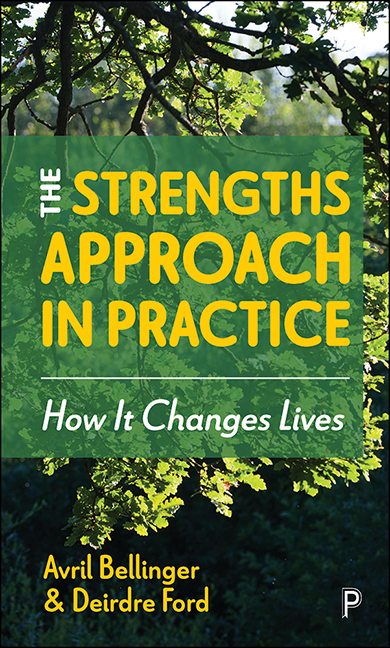Book contents
- Frontmatter
- Dedication
- Contents
- List of figures, tables and boxes
- About the authors
- Acknowledgements
- Preface
- Introduction: The strengths approach in a global emergency
- 1 A strengths approach to human need
- 2 A strengths approach to law and policy
- 3 A strengths approach to organisational development
- 4 A strengths approach to governance and management
- 5 A strengths approach to funding an NGO
- 6 A strengths approach to research
- 7 A strengths approach to student learning
- 8 A strengths approach to growing community
- 9 The strengths approach in practice: how it changes lives
- References
- Index
2 - A strengths approach to law and policy
Published online by Cambridge University Press: 15 September 2022
- Frontmatter
- Dedication
- Contents
- List of figures, tables and boxes
- About the authors
- Acknowledgements
- Preface
- Introduction: The strengths approach in a global emergency
- 1 A strengths approach to human need
- 2 A strengths approach to law and policy
- 3 A strengths approach to organisational development
- 4 A strengths approach to governance and management
- 5 A strengths approach to funding an NGO
- 6 A strengths approach to research
- 7 A strengths approach to student learning
- 8 A strengths approach to growing community
- 9 The strengths approach in practice: how it changes lives
- References
- Index
Summary
Some would say it would be better to challenge and break the law. Instead of advising on dispersal, mount pressure to stop NASS from dispersing! Instead of evicting from emergency accommodation, refuse to subcontract such accommodation and then resist all evictions attempted by … landlords! Instead of advising on the NASS scheme, advise on how to campaign for the restoration of full benefits not linked to immigration status! Instead of colluding, disrupt! Instead of becoming a slave-master, unite with the slaves!
Cohen (2006: 141)The manipulation of law and policy by governments to perpetuate power and social injustice (seen in every totalitarian regime before, since and including the Third Reich) is one of the toughest challenges confronting the strengths approach. This chapter is unique in exploring what a strengths approach to mobilising law and policy will involve. It aims to show through the examples how maintaining a strengths approach to legal frameworks can, in itself, subvert a government's aims to undermine human rights by such harmful means and promote social justice.
Understanding law, its purpose and function
Law is a core component of practice for professions like social work and is a way to achieve social justice at the level of collective action as well as that of the individual. In the contract between the individual and the state, it plays a key part in the regulation of power. Students and practitioners alike approach it with more than a degree of ambivalence, however – it is complex and constantly changing, not ‘set in tablets of stone’; it is not neutral but subject to interpretation; it can be contradictory in some areas and outdated in others; it is heavily influenced by political ideology, interest groups, public inquiries, the European Union, the media and moral panics.
It is characterised by inaccessible language and terminology rendering its use elitist; it is a blunt instrument incapable of covering every eventuality in a given situation. In risk-averse societies, it is increasingly deployed to impose ‘uniform solutions at the expense of private space’ (Sumption, 1999: 6) – with peers expressing concern at the ‘tsunami’ of new legislation in the UK, for example – as governments attempt to legislate their way out of trouble.
- Type
- Chapter
- Information
- The Strengths Approach in PracticeHow It Changes Lives, pp. 33 - 54Publisher: Bristol University PressPrint publication year: 2022



